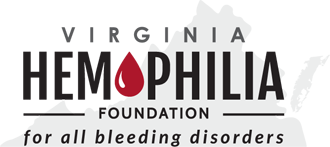Becky Bowers-Lanier | VHF & HACA Advocacy Consultant
This “short” General Assembly finished its 46-day session in 47 days, ending February 24, 2019. Because the short session marks the second year of the biennium, legislators worked to make amendments only to the biennial budget, primarily based on the recommended amendments that Governor Northam put forward in December 2018.
In addition to amending the budget, the House and Senate deliberated on 3334 bills, either introduced (3128) or carried over from the first year of the biennium (206). In total, 1897 were passed out of both houses and were sent to the Governor for his actions, for a total passage rate of 57%. That’s a lot of deliberating in 47 days!
The General Assembly’s work remains uncompleted, as they return on April 3rd for the reconvened session to deliberate on the Governor’s actions. The Governor approved 824 bills and vetoed 15 bills. We expect that the Governor will make comments on many of the remaining bills or simply allow the bills to become law without his signature.
In the reconvened session, we will be watching carefully several of the vetoed bills. Overriding of gubernatorial vetoes will be nearly impossible, since each chamber is close to parity with the Republicans controlling the House of Delegates by a margin of 51-49. Similarly, the Republicans control the Senate 21-19. A two-thirds majority vote is required to override vetoes.
The bleeding disorders community had a very good legislative session. During Richmond Days in January, we talked about two types of bills that we were supporting: the step therapy and the accumulator adjuster measures. Passage of both bills has the potential to improve the lives of our community, and both passed!
The step therapy bill, HB 2126, is designed to put constraints on the use of step therapy, or fail first, practices required by some insurers. Use of fail first practices could mean that an individual with hemophilia might be required to use a product that is not as effective as a more expensive product, solely to save money for the insurer. Del. Glenn Davis, patron of this bill, has pursued this legislation since 2015. We are grateful for his work on the bill and his perseverance to see it through to the finish line.
The accumulator adjuster bills (HB 2515 and SB 1596) were carried by Del. Tim Hugo and Sen. Siobhan Dunnavant. Both passed, which will mean that individuals who have health insurance plans regulated by the Commonwealth will not have to worry that their use of drug assistance cards will penalize them by not counting toward their annual deductible. This is a practice that is gaining in popularity particularly among self-insured plans, such as with large employers; unfortunately, these bills will not apply to self-insured plans.
Finally, we worked with other advocacy groups representing chronic conditions to ask the Governor to veto bills that are designed to siphon healthy consumers away from the larger marketplace risk pool, thus leaving sicker patients or those with chronic conditions like hemophilia in plans with fewer enrolled people. The result of the implementation of these plans would mean that our community members may have to pay much more for their insurance coverage than they currently pay. The Governor vetoed four of the bills: SB 1674, SB 1240, HB 2260, and SB 1027. As of this writing (March 27th), three bills remained unsigned—HB 1661, HB 2443, and SB 1689. All of these are “association” health plans that are theoretically available to individuals associated with certain organizations or fields. We will work to make certain that the Virginia General Assembly fails to override the vetoes.
Thanks to all of you for your advocacy during the 2019 General Assembly session. If you have questions, don’t hesitate to contact Becky Bowers-Lanier at bowerslanier@gmail.com.
